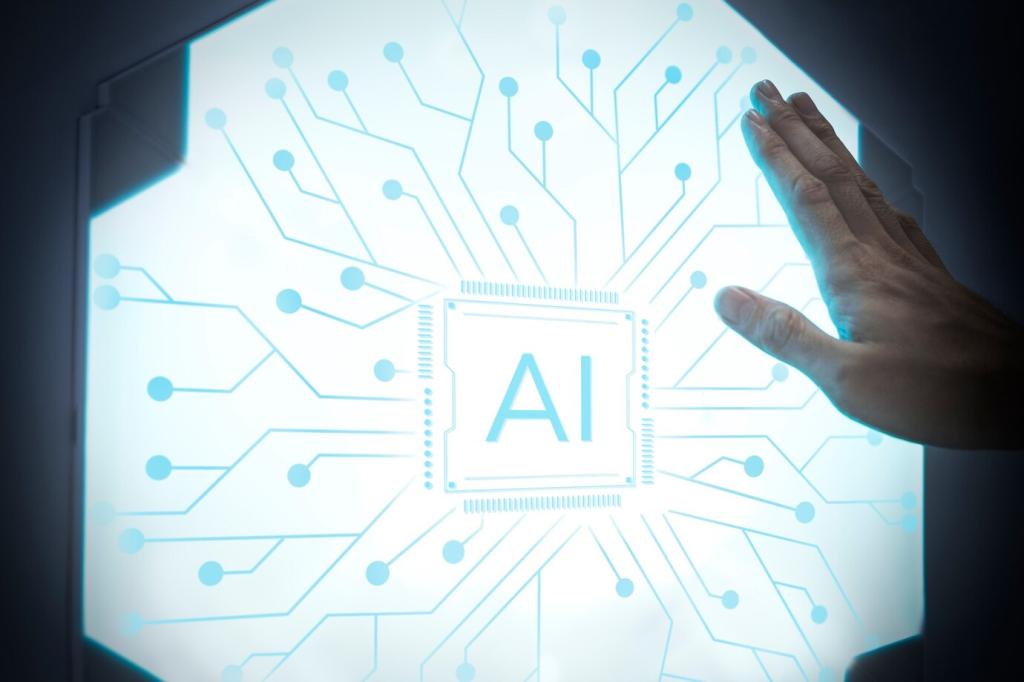Artificial Intelligence and Its Impact on Modern Accounting
Accounting was once synonymous with painstaking manual entry, tedious reconciliations, and meticulous recordkeeping. The introduction of digital tools marked the beginning of automation in the industry, streamlining processes that previously demanded hours of human effort. These early-stage technologies, while significant, remained largely static and demanded continuous human supervision. The arrival of AI represented a new chapter, allowing for the seamless automation of repetitive tasks such as invoice processing and expense reporting. By reducing the time spent on routine work, AI enables accountants to redirect their focus towards analysis and decision-making, fundamentally altering the nature of accounting work.

Automation of Routine Tasks
Data entry is a cornerstone of accounting and was historically labor-intensive, requiring careful attention to detail. With AI-driven tools, much of this work is now automated, minimizing the need for manual input and significantly reducing the chances of human error. Intelligent data capture technologies can extract relevant information from various documents, such as invoices and receipts, and input it directly into financial systems. These innovations not only save time but also ensure higher levels of data accuracy. As a result, accountants can focus more on reviewing financial statements and less on administrative chores, improving overall productivity.
AI-Powered Decision Making
01
Predictive Analytics for Forecasting
Predictive analytics, powered by AI, has become a game changer in financial forecasting. By drawing upon historical data and real-time inputs, AI models can predict revenue streams, anticipate cash flow fluctuations, and notify organizations of potential financial risks. This proactive forecasting enables businesses to develop robust strategies, allocate resources more effectively, and avoid costly surprises. Accountants, equipped with these advanced tools, can provide leadership with actionable recommendations that are grounded in data rather than intuition. Predictive analytics is not merely about projecting numbers; it’s about equipping organizations with the foresight to respond swiftly to market changes.
02
Real-Time Financial Insights
Access to real-time financial insights is crucial for organizations operating in fast-paced markets. AI enables the continuous analysis and visualization of accounting data, helping businesses identify trends, deviations, and performance metrics as they emerge. This real-time approach allows for immediate responses to unforeseen events and empowers management to make strategic decisions without delay. Accountants can use AI-driven dashboards to monitor financial health, track KPIs, and detect anomalies before they escalate. The ability to act on up-to-the-minute information gives businesses a decisive advantage, fostering greater agility and resilience.
03
Scenario Analysis and Risk Management
AI’s advanced modeling capabilities support sophisticated scenario analysis, enabling accountants to assess the potential impact of different business decisions. By simulating multiple financial scenarios and evaluating associated risks, organizations can test the outcomes of strategic choices before implementing them. This approach reduces uncertainty and supports more informed, data-driven decision-making. AI-driven risk management systems can also monitor external and internal factors in real time, alerting leadership to emerging threats and opportunities. With these tools, accountants can play a key role in guiding organizations through complex environments, balancing risk with reward.
Enhanced Accuracy and Fraud Detection
Manual accounting processes are inherently prone to errors, whether from simple data entry mistakes or miscalculations. AI-powered automation, however, applies consistent logic to every transaction, greatly reducing the margin for error. These systems can review and validate entries with a level of scrutiny unattainable by humans, immediately flagging discrepancies for review. The result is a more reliable audit trail and a significant improvement in the quality of financial reporting. By ensuring data integrity at every step, AI fosters a culture of accountability and accuracy in the accounting function.

From Number Crunchers to Advisors
Accountants are moving beyond the stereotype of back-office number crunchers, evolving into strategic business advisors. AI automates transactional processes, enabling professionals to devote more time to interpreting financial data and offering actionable insights. This new role involves guiding clients through complex financial decisions, optimizing tax strategies, and supporting long-term business planning. As trusted advisors, accountants become integral members of leadership teams, contributing directly to organizational success. The shift to advisory services not only enhances career prospects but also elevates the perceived value of the accounting profession.
Developing New Skills for the Digital Age
The rise of AI is prompting accountants to acquire new competencies to stay relevant in an era of automation. Technical skills related to data analytics, programming, and information systems are becoming increasingly valuable assets. At the same time, soft skills such as critical thinking, problem-solving, and effective communication are essential for translating complex data into strategic recommendations. Professional development programs are evolving to address these changing requirements, equipping accountants with the knowledge and confidence to leverage AI tools effectively. Embracing continuous learning is now a prerequisite for success in modern accounting.
Bridging the Human-Machine Divide
AI’s integration into accounting workflows brings people and technology closer together, highlighting the importance of collaboration. Accountants must act as interpreters between intelligent systems and business stakeholders, ensuring that AI-driven insights are properly understood and integrated into decision-making. This requires a nuanced understanding of both technological capabilities and business objectives. Cultivating a culture of collaboration allows organizations to extract maximum value from AI investments, with accountants serving as the bridge between automation and human judgment. This evolving relationship is shaping the future of accounting as a partnership between man and machine.
Data Privacy and Security
The use of AI in accounting often involves the processing and analysis of sensitive financial data. This raises serious concerns around data privacy and security, as breaches or unauthorized access can have severe consequences. Organizations must implement robust cybersecurity measures and ensure compliance with data protection regulations, such as GDPR or CCPA. AI systems must be designed to safeguard confidential information, with clear protocols for data storage, transmission, and access control. Accountants, as stewards of financial data, have a responsibility to champion strong security practices and foster a culture of vigilance within their organizations.
Addressing Algorithmic Bias
Algorithmic bias is a growing concern as AI technologies become more deeply integrated into accounting processes. These systems are only as unbiased as the data and algorithms that power them, meaning flawed or incomplete information can result in inaccurate or discriminatory outcomes. Accountants and AI developers must work together to identify, monitor, and mitigate potential sources of bias. Transparent model evaluation, regular audits, and the inclusion of diverse datasets are essential strategies for ensuring fair and accurate results. Addressing algorithmic bias is not just a technical necessity, but an ethical obligation in the quest for equitable accounting practices.
The Future of AI in Accounting
The auditing process is poised for a revolution, as AI-driven tools can automatically review large volumes of data and identify anomalies with unmatched precision. Intelligent auditing systems can cross-verify transactions, assess compliance, and even generate audit reports with limited human intervention. This evolution will significantly reduce the time and resources required for audits, allowing for continuous assurance and real-time oversight. As these tools become more sophisticated, auditors will be able to provide deeper insights and more proactive recommendations, transforming the role of audit in the corporate world.

